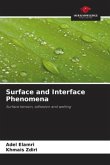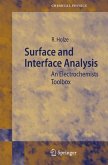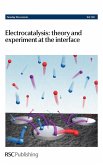The original Handbook of Surface and Interface Analysis: Methods for Problem-Solving was based on the authors' firm belief that characterization and analysis of surfaces should be conducted in the context of problem solving and not be based on the capabilities of any individual technique. Now, a decade later, trends in science and technology appear to have validated their assertions. Major instrumental assets are generally funded and maintained as central facilities to help potential users make informed decisions about their appropriate use in solving analytical problem(s). Building on the popular first edition, this long-awaited second edition was motivated by the increasingly common industry view that it is more cost-effective to contract out analytical services than to maintain in-house facilities. Guided by that trend, this book focuses on developing strategic thinking for those who decide which facilities to access and where to subcontract analytical work. It covers most of the major tactical issues that are relevant at the location in which data are being produced. New Information in this Second Edition Includes: Electron-optical imaging techniques and associated analytical methods Techniques based on synchrotron sources Convenient and versatile scanning probe group methods Scanning tunneling microscopy, biocompatible materials, and nano-structured materials Assessing benefits and limitations of different methodologies, this volume provides the essential physical basis and common modes of operation for groups of techniques. Exploring methods for characterization and analysis of particular types of materials and/or their relevant applications-the text synergizes traditional and novel ideas to help readers develop a versatile and rational approach to surface and interface analysis.
Hinweis: Dieser Artikel kann nur an eine deutsche Lieferadresse ausgeliefert werden.
Hinweis: Dieser Artikel kann nur an eine deutsche Lieferadresse ausgeliefert werden.








